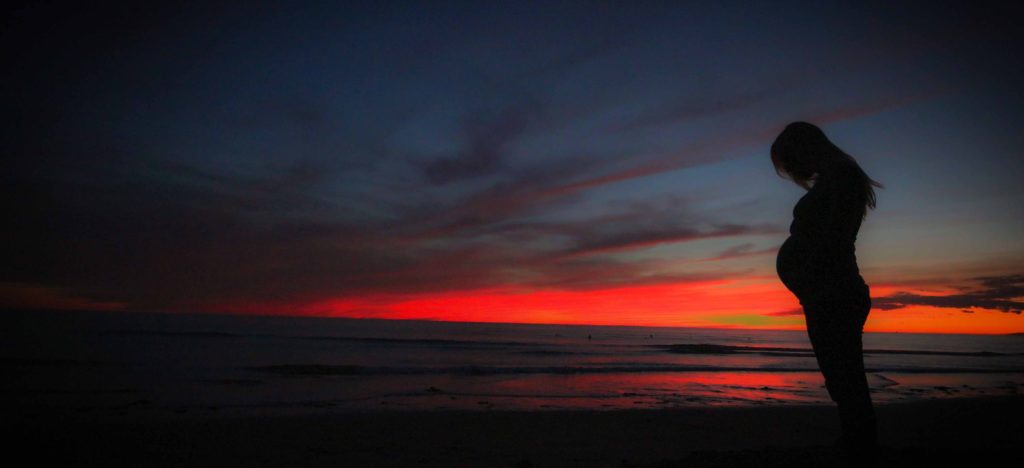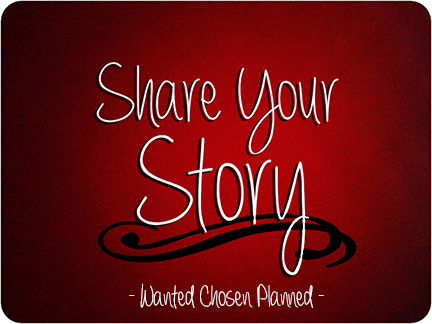The Tough choice of Termination
I welcome Julie Bindeman here on Wanted Chosen Planned for a special guest post today. All stories shared on WCP may prove to be triggers for other grievers. I want to preface this post by saying that everyone’s experiences of loss are different; we all make different choices and grieve in our own unique ways. Termination is a sensitive topic for many. A controversial topic. I welcome Julie’s story here – and the stories of others – because this is a safe place and I believe that there is power in breaking the taboo around the conversation of loss, weather we agree or not. Wanted Chosen Planned is “no-judgement” zone.
Here is Julie’s story:

Stock Photo
When my son was about 18 months old, my husband and I decided that it was time to try for a second child. We were surprised when I got pregnant immediately. In my gut, I knew something wasn’t right. The pregnancy test had a light line and I didn’t have the severe morning sickness that I had previously. I went to the doctor’s when I was six weeks and two days for an ultrasound. I saw the heartbeat, but they wanted to see me two weeks later. When I returned, there was no heartbeat, and the baby measured only six weeks, three days. I had miscarried.
Many of my friends and family had been through a miscarriage, and while it was emotionally hard, I figured that it was somewhat par for the course. Once my cycle came back, we decided to try again. I was using a fertility monitor (as I had with the miscarriage and my living child) and on day 28, I started to bleed. I figured that this was my period, even though it was fairly light and only lasted a few days. I didn’t bother with a pregnancy test, and hoped for better luck the next month. On day 13, I started to bleed heavily. This didn’t make sense to me, as it was way too early for my cycle. I called the doctor, and the nurse suggested I take a pregnancy test.
“No way I can be pregnant.” I ran to the supermarket to buy new underwear and a test. I came back to my office, took the test, and as I pulled it up to look at it, a giant “+” appeared. I called my doctor back, and they were able to have me come in the next day. That night, I passed a clot, and I was convinced that I miscarried again. I was a wreck.
I went to the doctor the next day. They drew blood and gave me an ultrasound. I was six weeks along, and on the screen was a heartbeat. I couldn’t believe it. The clot seemed to come from another place in my uterus that was unconnected to the baby. I was put on “pelvic rest” and told to come in the following week.
At my next visit, the clot was bigger, so I was ordered to go on bed rest. The baby remained unaffected and seemed to be growing well. The following week, the clot was gone. I scheduled my nuchal fold translucency (a preliminary screening for Down syndrome and some other chromosomal abnormalities.) The test came back with a low likelihood for any of the abnormalities screened, and I finally was able to breathe. I started to tell my friends and our families. I’m a psychologist, and two weeks later, I started to tell my clients. I would be due in April of 2010.
As the weeks progressed, my symptoms started to fade. The intense nausea subsided and I was able to stop taking medication. I was able to eat again. I had been gaining weight, so no one was concerned. The Friday before Thanksgiving, we went to our 20-week ultrasound excited to find out if our son was going to have a brother or a sister.
We arrived at my doctor’s office to be told that our insurance company would not reimburse for a scan there, and we had to go elsewhere. My doctor was able to book us at a nearby radiologist’s office instead. The tech was chatty with us and very talkative. She didn’t tell us anything about what she saw, except we were having a son. I was hoping for a girl, so I was a little sad. She told us to go back to our doctor’s office for the results, which we thought was just part of the routine, as this scan happened elsewhere. We arrived back at my OB’s office and were immediately rushed into the OB’s study. She closed the door and told us how sorry she was.
“Sorry? For what? I’ll be fine with two boys. It means that I’ll just have to try again for the girl.” She had a shocked looked on her face and replied, “They didn’t tell you. Your son’s brain ventricles are twice the size they should be.” Both my husband and I started crying right there. Huge sobs. I started to ask about brain plasticity and what this meant. She was able to get us a second opinion in about an hour at a perinatologist’s office. We tried to go out to lunch but I couldn’t eat.
At the perinatologist’s office the tech did an ultrasound, and the doctor came in to look for herself. She confirmed that the brain ventricles were 1.8cm, when 1cm is the top of normal. We met with a genetic counselor, and we were able to set up an appointment at Children’s Hospital the following week. Additionally, we had an amniocentisis to determine if there were additional abnormalities.
After an agonizing wait, we met with the doctors at Children’s. We had an MRI, ultrasound, meeting with a genetic counselor, and a meeting with the radiologist as well as the pediatric neurosurgeon. In four days, the ventricles had grown 0.2mm, and they were now measuring at 2cm. The MRI detected very little brain matter, as the ventricles were too large to accommodate anything else growing in that space. The pediatric neurosurgeon told us that our best-case scenario was that our son would have the developmental quality of a 2-month-old. She started to talk about special chairs we could order for him as he grew, if he even survived birth. We were given a diagnosis of ventriculomegaly with the likelihood of anencephaly. We were told our options: we could drive up to a nearby state where I would be able to undergo a surgical procedure to end the pregnancy, I could have my labor induced and deliver at my local hospital if my doctor would do it, or I could carry the baby to term to see what happened.
There wasn’t much discussion between my husband and I. We were going to end the pregnancy. I wanted to be around my family, so we decided to deliver. We also had to decide what we wanted that to look like: would we hold the baby, name him, and bury him? There were so many decisions to be made and we just weren’t in the state of mind to make them. The next day was Thanksgiving, and I somehow made it through that holiday. I decided that I didn’t want to be around many people, and it was kept to immediate family who all knew the situation.
We arrived at the hospital at 7:00 the following morning. We were taken to Labor and Delivery and a nurse started to ask me questions. She seemed very intent on my holding our son and naming him, “to assist with the grieving process.” I knew myself too well, and after much discussion, we had made the decision that we just wanted this to be done with. This wasn’t our baby that we were meant to have.
I was given Cytotec vaginally to induce labor. This had to be done every six hours. Finally, after three doses, I started to deliver. The shift of nurses had changed. A few hours before delivery, I asked for pain medication. I was given it via IV and my doctor then ordered the nurse to give me medication, which she did not do. I was given an epidural, and unlike the one I had with my son, I couldn’t move the lower half of my body.
Finally, it was time to deliver the baby. I turned my head away and closed my eyes, as I was crying. My husband held my hand the whole time. They took our son away, but I wasn’t done yet. The placenta would not deliver. The nurse came in and told us that we had a beautiful son. For us, this was not a helpful comment.
Suddenly, I felt the most intense pain in my life. It was like being on fire. I was screaming, and my husband’s requests were not being heard. After half an hour, we finally got a doctor in to give me medication. The nurse, who didn’t give me medication earlier had also turned off my epidural prematurely. It was decided that I would be wheeled off to surgery for a D&C since the placenta wouldn’t detach.
I awoke from surgery and I asked whether or not my son had died. He had. I was taken to the postpartum floor, but a butterfly on my door indicated that I was not paired with a baby. I was discharged the next day. Things felt so surreal. Once I got home, a new wave of tears erupted.
We had a genetic test done to see if this was the result of an X-linked trait. We also had the amnio tested for one of three viruses known to cause ventriculomegaly. All of these tests were negative. Our doctors thought it was a fluke occurrence. They advised us to wait until my cycle regulated and then to try again.
Five months later, I became pregnant. In fact, we learned about this pregnancy shortly after my estimated due date. I was terrified. I was able to make it through the first trimester, but with extreme nausea. All of our tests came back great, once again. I was being monitored every two weeks to check for brain development. At 17-weeks, the ventricles were measuring at the threshold of 1cm. The following week, I was back at Children’s.
Another MRI, ultrasound, and meetings. At this point, the ventricles were 1.2cm, bigger than the previous measurement. We knew where this was going. I went to the perinatologist’s for an amniocentesis once again. This time, we would do a micro-array to see if we could find the faulty gene. Since I was before 20 weeks, I was able to schedule a D&E to terminate my pregnancy. The experience was such a contrast. The hospital staff was warm and consoling. The surgeon was an angel. On August 13, 2010, I said goodbye to my second child, this one was the daughter I was longing for. Again, we chose not to name her, even though we had a name to use. We wanted to wait and give it to a living child.
Our tests came back normal once again. The geneticist decided to compare MRI’s of the babies, my husband, his sister (who also has hydrocephalus, which occurs when the cerebral-spinal fluid can’t drain on its own), and his mother. Hydrocephalus is not an inherited condition, so it is strange that in one family, there is a fairly high incidence rate (my mother-in-law has adult onset, which is different, and her mother delivered stillborn twins, one of which had hydrocephalus as well). The thought was that maybe it was a dominant gene that my husband carried. After a few months of experts weighing in on our pictures, they concluded that the babies’ MRI’s were similar to one another, but different from the family. The best guess was that our losses were the result of a recessive combination of genes: one from each of us.
The second loss was its own grief experience compounded with the other two. I felt hopeless around adding to our family. I was so sad, and knew no one who could understand what it was like to have multiple losses, especially for the same thing. At this point in time, I found a web forum for women who elected to terminate wanted pregnancies due to fetal abnormalities. These women were a life-line to me: they knew what I was going through and could say that it gets better.
It has been nearly two years since my first termination. I am back to being myself: optimistic and eager to share our lives with another child. I was able to fulfill this dream in July of 2011, when I gave birth to my daughter, my second living child, who is wonderful in every way.

Julie Bindeman
(Shared with permission from Julie Bindeman, 1 in 10 Blog)
Than you, Julie, for opening up about your experience of loss. We remember your two babies that died with you, sending love your way. From all of us in the Wanted Chosen Planned community and everyone who reads this, please accept our sincerest condolences.
Pregnancy loss and infant loss is an experience known by many, unfortunately. We who have lived it can be an amazing support for each other. If you would like to share your story, please email Alexis Marie Chute at info@alexismariechute.com
Thank you for reading.


